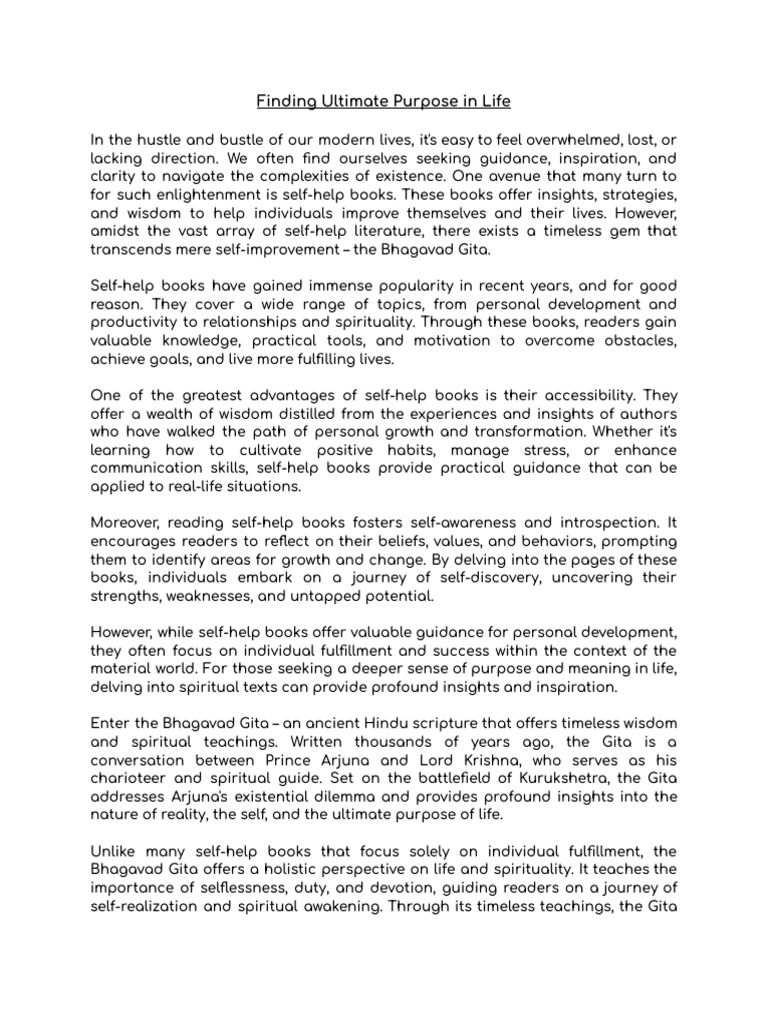Life presents an inexhaustible canvas upon which individuals paint their aspirations, fears, and dreams. Within the Bahá’í Faith, the quest for purpose transcends mere existential musings, delving into profound spiritual dimensions that illuminate the path to self-actualization. By contemplating the question, “What do you want out of life?” Bahá’ís embark on a transformative journey towards understanding their ultimate purpose, driven by the teachings of Bahá’u’lláh. In this guide, we will explore the principles of Bahá’í teachings that offer insights into realizing one’s purpose in life.
Central to Bahá’í teachings is the concept of the oneness of humanity. This principle fosters a profound shift in perspective: the recognition that individual aspirations are intrinsically linked to the collective well-being of humanity. The desire for personal fulfillment should harmonize with the welfare of others. Achieving one’s goals is not merely an individual pursuit; it is a shared endeavor that enriches the tapestry of communal existence. Engaging with this idea invites one to reconsider personal ambitions through the lens of communal benefit, urging individuals to align their pursuits with global progress.
Another pivotal teaching in the Bahá’í Faith is the importance of education and knowledge. Education is heralded not just as a path to personal advancement, but as an instrument for social transformation. In the quest for purpose, a Bahá’í is encouraged to prioritize the acquisition of both material and spiritual knowledge. By striving to understand the complexities of the world, engaging in lifelong learning, and applying wisdom to one’s choices, individuals can craft a more meaningful life. The pursuit of knowledge becomes an essential aspect of fulfilling one’s purpose, as it equips individuals to contribute effectively to society.
Moreover, the Bahá’í teachings emphasize the significance of service to humanity. Service is considered a source of true joy and fulfillment. It is through selfless actions that individuals can discover their true potential and purpose. This ethos invigorates a sense of responsibility towards one’s fellow beings, compelling Bahá’ís to actively seek out ways to serve their communities. Whether through charitable work, advocacy for the marginalized, or engaging in local initiatives aimed at enhancing societal conditions, the act of serving others provides profound satisfaction. Individuals may find that their aspirations materialize when they center their life’s work around community upliftment.
The concept of the “spiritual journey” serves as a guiding principle within Bahá’í teachings. Each individual is seen as a pilgrim on the path to spiritual enlightenment, and the ultimate purpose of life is to foster one’s relationship with the Divine. This relationship is nurtured through prayer, meditation, and reflection. As Bahá’ís engage in this personal journey, they cultivate virtues such as patience, love, and humility, which are paramount in achieving a higher purpose. The process of spiritual development can elicit profound changes in perspective, leading to an enriched sense of meaning in everyday life.
Another noteworthy aspect of Bahá’í teachings is their emphasis on the harmony of science and religion. This principle invites individuals to seek answers to their existential questions through both empirical inquiry and spiritual understanding. It presents a holistic approach to purpose by encouraging Bahá’ís to explore the interconnections between their spiritual beliefs and scientific pursuits. By integrating both dimensions, individuals can achieve a more comprehensive perspective on life, enhancing their ability to contribute meaningfully to the world.
Furthermore, the teachings underscore the necessity of unity and collaboration in the pursuit of purpose. Bahá’ís believe that societal progress is achieved through cooperative efforts across different cultures and backgrounds. In a world rife with division, fostering unity becomes a critical endeavor. By engaging in dialogues that resonate with mutual respect and understanding, individuals can transcend personal limitations and explore the broader human experience. This collaborative spirit invigorates the search for purpose, motivating individuals to partake in transformative actions that resonate on a global scale.
Another compelling aspect of the Bahá’í Faith is the concept of the “Short Obligatory Prayer,” which emphasizes daily prayer as a means to reconnect with one’s ideals and aspirations. Prayers serve as a mechanism for reflection, allowing individuals to assess their goals and intentions regularly. Incorporating such practices into one’s routine establishes a rhythm of mindfulness that nurtures purpose. The act of pausing amidst the busyness of life fosters a reflective disposition, encouraging the individual to realign their actions with their deeper values.
In conclusion, the Bahá’í teachings offer a rich and multifaceted framework for exploring the question, “What do you want out of life?” By integrating principles of oneness, education, service, spiritual journey, harmonization of science and religion, unity, and regular reflection through prayer, individuals are equipped to navigate their aspirations with profound clarity and purpose. The exploration of one’s desires becomes an intricate interplay of personal fulfillment and collective responsibility. In a world that often seems fragmented, these teachings invite us to embrace a more expansive, interconnected vision of our lives—a vision that promises to enrich both the individual and the society at large.
